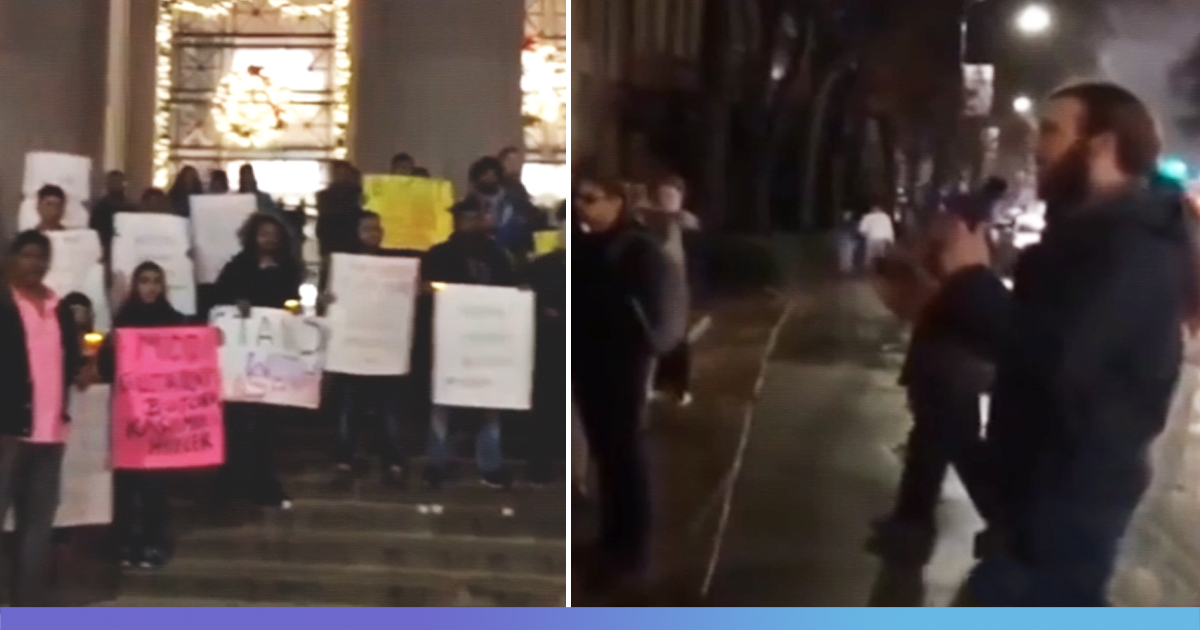The student protests against the contentious Citizenship (Amendment) Act (CAA) are gaining momentum in universities in the US, UK, and Nepal. The student bodies have vehemently condemned the CAA and raised their voices against it. They expressed solidarity to the student protesters who have seemingly become the largest opposition of the ruling dispensation.
USA
Around 400 students belonging to the Indian diaspora from universities in the US protested against the act and extended their support to the student protesters on December 15, Sunday. They termed the act as a gross violation of human rights. While expressing their solidarity, with students across Indian universities, they believed that CAA is ‘unconstitutional and discriminatory’.
“By every account, it appears that police and paramilitary, both at Jamia and at AMU, have used violence and pursued unlawful and reckless tactics against student protesters in violation of protections under the Constitution of India and International Human Rights law,” read the statement released by Jhalak M. Kakkar of Harvard Law School.
The students/alumni groups who have signed the statement include Harvard University, Columbia University, Yale University, New York University, Stanford University, Massachusetts Institute of Technology, University of California, Berkeley, and several others.
United Kingdom
People from different groups and ethnicities mobilised outside the Indian High Commission, London on December 14, Saturday, to protest against the Citizenship Amendment Act. They branded the current government as Modi’s “failures”.
A group of protesters from the British Assamese community, dressed in their traditional attire and accompanied by children, waved placards in Assamese as well as some in English that read: Save Democracy, Stop CAA.
Nepal
Last week, the Gorkha Janmukti Morcha (Binay Tamang faction) jointly with workers of the TMC staged a protest in front of the district magistrate’s office against the CAA.
Burning a copy of the Bill, Binay Tamang said, “If the Rajya Sabha also passes the bill today, it would be a very unfortunate thing for the citizens of the country and the Gorkhas.”
Opposing both CAA and NRC, he said various treaties with Bhutan and Nepal have made matters complicated here, and clauses 5, 7, 14 of the CAB will affect the people here. Through this bill, the central government is trying to divide the country on the basis of religion.
“Although the Constitution of India safeguard’s rights of the tribal people and various groups in India, about 1 lakh people whose names were excluded from the NRC list of Assam were Gorkhas,” he said, attacking Home Minister Amit Shah.
Also Read: India’s Growth Forecast Likely To Be Significantly Cut In January: IMF Chief Economist Gita Gopinath











